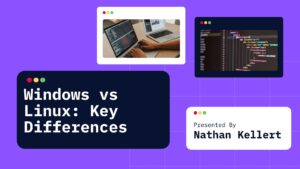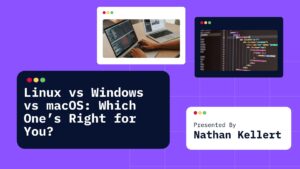So you’re preparing for a healthcare data analyst interview? Nice! This role is getting hotter every year, especially with the boom in health tech and electronic medical records. Whether you’re fresh out of college or switching careers into healthcare analytics, it’s smart to prep yourself with the most commonly asked interview questions—along with simple, confident answers.
Here’s a solid list of healthcare data analyst interview questions that hiring managers love to ask (plus some casual advice for answering them like a pro).
Table of Contents
1. What Does a Healthcare Data Analyst Do?
A healthcare data analyst works with medical data like patient records, treatment outcomes, insurance claims, and hospital operations. You clean, interpret, and visualize this data to help healthcare providers make better decisions. Basically, you turn messy medical numbers into real insights.
2. What Types of Data Do You Usually Work With?
Expect questions like this to see how familiar you are with the healthcare world. Your answer can include:
- EHR/EMR (Electronic Health/Medical Records)
- Claims and billing data
- Lab results
- Survey data from patients
- Hospital performance metrics
- Public health datasets like CDC or WHO
Mention any HIPAA-compliant or anonymized datasets you’ve worked with too.
3. How Do You Ensure Patient Data Privacy and Compliance?
They want to hear you know how sensitive healthcare data is. A good answer is:
“I always follow HIPAA guidelines, and I’m careful not to include personally identifiable info in my analysis. I make sure my reports are aggregated and access is controlled. When needed, I use de-identified data and secure platforms.”
4. What Tools and Technologies Do You Use?
This one’s straightforward—just be honest. Common tools include:
- SQL for querying databases
- Excel for fast analysis
- Python or R for data cleaning, visualization, and modeling
- Tableau or Power BI for dashboards
- SAS (especially in hospitals and insurance)
- Snowflake, Azure, or AWS if it’s cloud-based
Tailor your answer to the job listing, and mention any certifications like Google Data Analytics, SAS Base Programmer, etc.
5. Can You Explain a Project Where You Improved Healthcare Outcomes?
Hiring managers love real-life impact. For example:
“In my internship at XYZ Clinic, I analyzed hospital readmission rates and discovered a trend with diabetic patients. By recommending a follow-up system, the clinic cut readmissions by 12% over 6 months.”
That shows you’re not just crunching numbers—you’re helping people.
6. What Metrics Do You Track in a Hospital?
Expect to talk about KPIs like:
- Average Length of Stay (ALOS)
- Readmission Rates
- Bed Occupancy Rate
- Patient Satisfaction Scores
- Cost per Patient
- Appointment No-Show Rate
- Claims Denial Rates
If you’ve worked on any of these, go ahead and brag a little.
7. How Do You Handle Missing or Incomplete Data?
Healthcare data is messy—this is a common question. A strong answer:
“First, I check how much data is missing and whether it’s random or systematic. Then I either fill it in using averages, interpolation, or domain-specific logic—or I remove the rows if it doesn’t affect the results much. But I always document my decisions.”
8. What is Risk Adjustment in Healthcare Analytics?
This one can trip people up. Here’s a simple response:
“Risk adjustment accounts for differences in patient populations—like age, health status, or chronic conditions—so that performance comparisons across providers are fair. It ensures we’re not penalizing doctors who treat sicker patients.”
9. How Do You Communicate Data Insights to Non-Technical Staff?
Communication is key. Your answer should show clarity:
“I avoid jargon and use visuals like charts and dashboards to tell a story. I also try to frame insights in terms of patient outcomes or cost savings, so stakeholders immediately understand the impact.”
10. How Do You Prioritize Multiple Data Requests?
Show you’re organized. You can say:
“I evaluate requests based on urgency, impact, and deadlines. If it’s unclear, I talk to stakeholders to understand the bigger goal. I also keep a queue and communicate status regularly to keep expectations clear.”
11. What is Predictive Analytics and Have You Used It?
Predictive analytics = using historical data to forecast future trends. In healthcare, this might be predicting:
- Risk of readmission
- Disease outbreaks
- ER visit likelihood
- Medication adherence
If you’ve used logistic regression or classification models, mention it. Even basic prediction work looks impressive.
12. What Do You Know About Value-Based Care?
Value-based care is a shift from paying for services to paying for outcomes. So instead of “fee for service”, providers get rewarded for improving health, reducing hospital stays, etc.
If you’ve analyzed outcome metrics or costs under this model, talk about it.
13. Describe a Time You Found an Error in the Data
This one’s to test your attention to detail. Think of a time when something seemed off—like inconsistent patient IDs, wrong dates, or duplicates. Talk about how you caught it, investigated the root cause, and fixed it.
14. What Are ICD Codes and Why Are They Important?
ICD stands for International Classification of Diseases. These codes are used to classify and bill for diagnoses and procedures.
They’re important because they affect billing, analytics, and treatment records. Show that you know how these codes tie into your datasets.
15. Why Do You Want to Work in Healthcare Analytics?
Be real here. Say something like:
“I love working with data, but I wanted my work to mean something. Healthcare analytics gives me a chance to use my skills to improve lives, cut costs, and make systems more efficient.”
Extra Tips to Ace Your Interview:
- Research the company’s mission and the kind of data they use
- Be ready to solve a small SQL query or Excel task live
- Bring a portfolio if you can—a dashboard screenshot, a cleaned dataset, or a simple project
- Prepare a couple of real-world success stories from past jobs, school, or internships
- Be confident, but don’t be afraid to say “I’m still learning that, but I’m excited to get better at it.”
Healthcare data analysts are becoming essential in modern medicine. Your ability to combine technical skills with a passion for healthcare can really make you stand out. Practice these questions, know your tools, and be ready to explain why your work matters.
Want mock questions in quiz format or want to prep your resume too? Just let me know!







